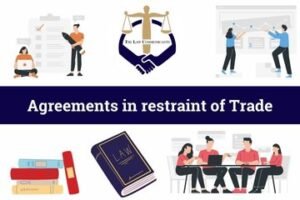Fair Competition Amidst Covid-19: A Check on International to Regional Competition Regulations
Introduction
From a layman’s perspective, one may think that competition law is limited to regularising fair competition in the market, being a watchdog for modulating the behaviour of monopolistic companies. But in practical significance, the Competition Authority in many states acts as a guard for the protection of consumer rights and bar the companies from indulging in cartels so to make essential things available at an affordable price to the consumers. Generally, we look at such aspects from the lens of constitutional rights or consumer protection rights, however, it is unpopular that actually competition law also plays a significant role in such areas.
So let’s know understand how competition law is connected recently to consumer rights in the wave of COVID times. Right now, we can see two common trends all over the world:
- In the time of pandemic we have seen many big companies coming together so to make essential things available to the consumers, though it may alert the fair competition in broader sense Competition Authority needs to allow such collaborations so that the essential commodities reach out the consumers;
- The second concern is – “do this collaboration is exploiting the crisis”. So thereby, the Competition Commission have to warn such business from exploiting consumers and adjust their enforcement to such practices by prioritising the scrutiny practices related to essential consumer products.
- Third, is excessive pricing on health care products and food products.
We will be discussing first how the different competition authorities all over the world are trying to channel the required regulations during this pandemic and then we will check how the Competition Commission of India is resolving issues during this crisis. Then we will move on to the conclusion, where we will see what are the challenges coming forward and how we shall prepare from the competition law facet.
Amidst COVID – International competition regulations
In the UK, the Competition and Markets Authority (CMA) tried to mitigate these issues by relaxing competition rule (here) for grocery, dairy and healthcare sectors. Also with these specific exemptions, the CMA indicated that it won’t take enforcement actions where businesses are trying to adopt temporary measures like mentioned below because of the pandemic:
- Allowing the businesses to take appropriate and necessary steps to ensure the security of supply or avoid a shortage of supply of products/service;
- contributing to the benefit or wellbeing of consumers;
- deal with critical issues arising from the pandemic; and
- last no longer than necessary.
However, CMA strictly warned the business from indulging in exchanging information on longer-term pricing or business strategies which is not required to address the pandemic situation.
Now moving to Australia, The Australian Competition and Consumer Commission (ACCC), during COVID times have granted more than 20 interim authorisations (here) across a broad range of sectors which otherwise is not allowed under the Competition law. The interim authorisations relief was given to sectors like:
- supermarket and certain retailers to join so to ensure supply and fair distribution;
- the national broadband network wholesaler and five largest broadband service providers to collaborate so to manage the requirement of the net at home because of work from home,
- private insurers to arrange financial relief for policyholders and broad coverage etc
However, it is important to highlight that Australian Competition law does not prohibit excessive pricing directly unless the extreme pricing could amount to prohibited unconscionable conduct. Though the enforcement prioritises the competition rules, consumer issues are still on the focus considering the pandemic. While enforcing the issues the ACCC stated that it will also take into account the pandemic strains and would not take extreme measures unless required.
Considering some Asian countries, Hong Kong Competition Commission (HKCC) has not made any formal changes (here) with regards to the pandemic. Its competition rules remain the same. Wherein, the Japan Fair Trade Commission (JFTC) has accepted temporary cooperation with competitors as advised in the prior guidance which was issued in 2011 (during natural calamity). The JFTC reminded the businesses regarding the tying about supply shortages of health care products like masks, hygiene may be considered as contravention to the competition law. Similarly, in China, the State Administration for Market Regulation (SAMR) allowed cooperation in certain forms in the field of R&D agreements related to drugs and medical devices. At the same time, it should be noted that SAMR is strictly investigating and imposing sanctions for anti-competitive conduct which are creating barriers to industrial production and consumer interests as per the Competition law.
Moving onto certain Southeast Asian countries, Indonesia and Malaysia are checking on excessive pricing and controlling the same. Both countries made formal regulations for the same. While, Singaporean Competition Authority is working, with the vast majority of staff working remotely. In the Philippines, no such formal announcement is made about the pandemic. However, the Taiwan Fair Trade Commission (TFTC) is strictly following the move to combat price-fixing and price gouging and also made raids at supermarkets recently on the purview of such urgencies.
As far as we discussed various international competition commissions. Let’s now look at how the Competition Commission of India is working to mitigate issues related to pandemics.
Covid and Competition Commission of India
On 23rd March 2020, one day before the Indian Government announced national lockdown for 21 days, the CCI issued a notification (here) whereby it adjourned the listing of the matter till 31st March 2020 and also suspended various activities of CCI till 31st March 2020. Because of COVID, there were various issues raised regarding excessive pricing on healthcare products like sanitisers and masks. Thereby, on 19th April 2020 (here), the CCI issued an advisory warning to the businesses alerting the consequences of increasing the pricing of essential commodities. However, it is important to note that the CCI do not give any relaxation or considerations for any collaborations.
It is important to understand that actually, an economic crisis like this can lead to the formation of “Crisis Cartels”. Such cartels are formed at a global, national or sectoral level during the economic down without the state permission or legal sanction or also be formed with the permission of the state. Now during COVID, the CCI is facing issues to ensure a balance between governmental objectives and antitrust considerations. However, at the same time, Indian Competition law certainly is not acknowledging any such industrial collaborations and the CCI has not explored any Crisis Cartel yet. Further, we have seen that many countries have issued a notification with regards to collaborations but CCI has not provided any exemptions for any sectors except a few relaxations in the compliance requirements (the compliance requirements was more related to the digital filing which was issued on 13th April 2020 (here) and 20th April 2020 (here).)
The important aspect here to think about is how CCI will be handling any such collaboration on the sectors of healthcare and other sectors like broadband, e-commerce etc. Well while seeing from the other lens in most of these sectors, especially healthcare, the government has a monopoly, thereby mostly it remains the sole buyer. It may seem that competition, therefore, might be less, but then the concern remains the same with regards to buyer’s cartel and cartel with the government by different private entities.
Conclusion
Companies worldwide are involved in the business of essential commodities but the point of worry is especially that when humanity is facing such a huge crisis they might indulge in any anti-competitive behaviour or increase prices of essential commodities. Here comes the Competition law as a rescuer to check and bar businesses from entering into anti-competitive practices, hence thereby making essential commodities available to the consumer at affordable and reasonable prices.
Taking into consideration the international aspect, different Competition Commissions already have taken adequate steps. However, considering the CCI, it is still under review of spectators, who are granularly analysing how CCI will deal with the pandemic related anti-competitive issues where it has to balance government objectives with anti-trust considerations. Well, we rest here leaving the time to check and show us the veracities.





